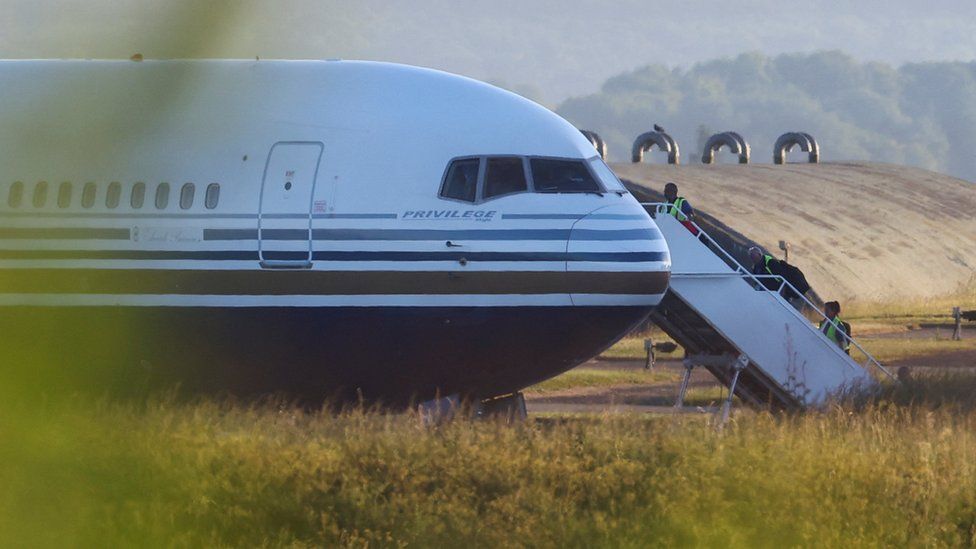
Flights to Rwanda were grounded at the last minute in 2022 after legal challenges
By Paul Seddon
Politics reporter
The government’s showdown with the House of Lords over its Rwanda deportation bill is continuing.
It comes after MPs overturned the latest series of changes to the bill, which were made by the Lords on Monday.
The legislation is set to deliver the much-delayed plan to send some asylum seekers to the east African nation.
Opposition peers insist changes are required to make sure Rwanda is a safe destination.
However, the government has ruled out making concessions to get it through the Lords, where the latest debate is now under way.
The two Houses of Parliament have been in a protracted stand-off over the final wording of the law.
The legislation had been expected to clear its final stages on Wednesday, but it is now unclear whether it will do so.
Labour is expected to continue pressing for a ban on sending people who have assisted the UK military to Rwanda.
Another amendment backed by peers says that flights should not take off until a committee of experts set up to monitor the scheme decides Rwanda has fulfilled certain safeguards.
However, the party does not have a majority in the Lords. It means the legislation could still pass its final stages later on Wednesday, if crossbench – or independent – peers decide not to continue their opposition.
This would pave the way for the bill to officially become law within days, with ministers hoping to get flights off the ground within weeks.
Prime Minister Rishi Sunak has made the scheme a key part of his plan to stop people crossing the Channel in small boats.
First announced two years ago under Boris Johnson, the programme has been beset by delays.
Legal challenges
The legislation making its way through Parliament was unveiled earlier this year, after the scheme was ruled unlawful by the Supreme Court last year.
In a attempt to resurrect the programme and prevent legal challenges blocking future deportations, it would say Rwanda is a safe country in UK law.
It would also restrict the ability of the courts to block flights on human rights grounds – something ministers argue is necessary step to ensure deportations are not derailed by legal challenges.
But critics say the scheme will put people at risk, and the legislation undermines the independence of the courts.
Labour argues the scheme will not succeed in deterring people from making the journey and has vowed to scrap it if it wins power at the general election.
However, ministers are keen to get the scheme up and running before voters go the polls, expected later this year.








